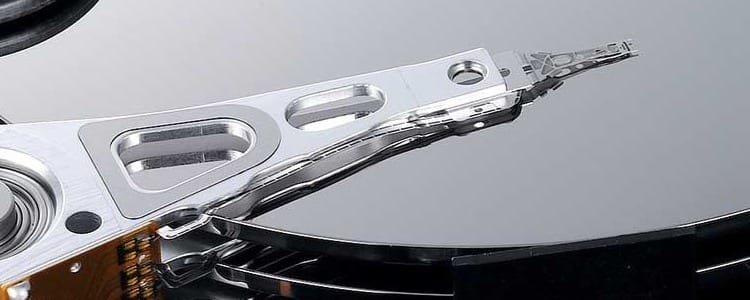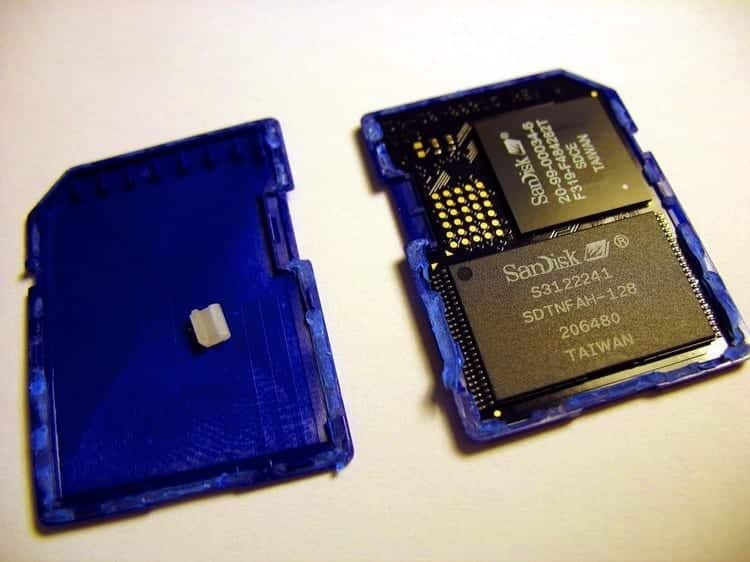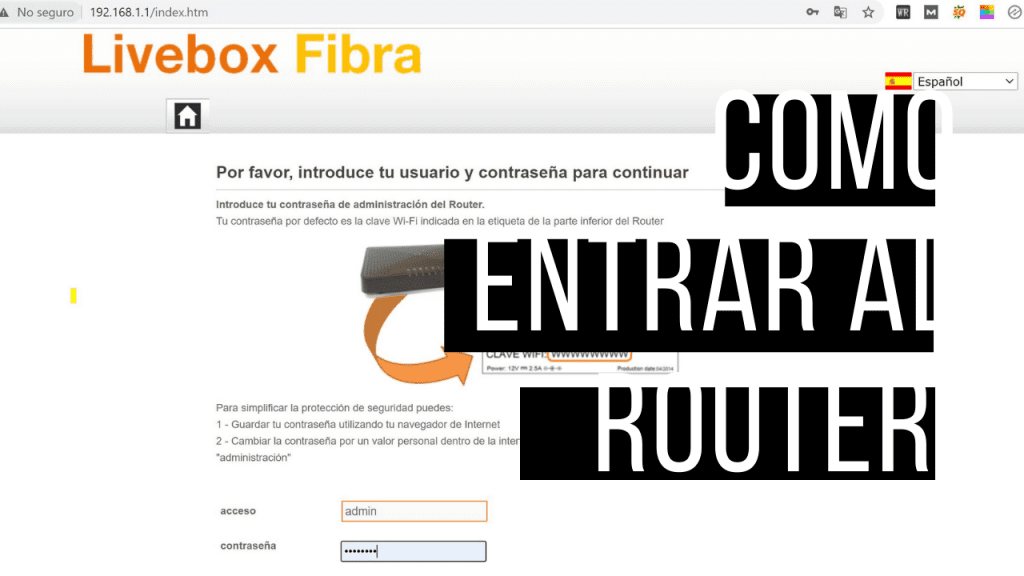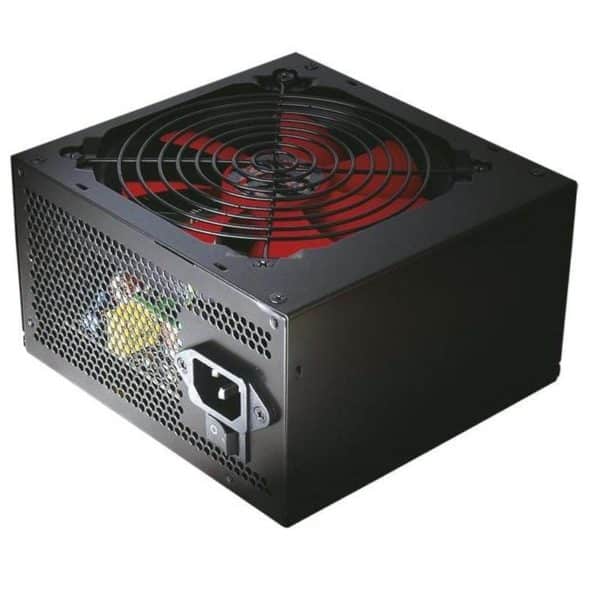Most likely, at some point you have format a storage drive and you have verified that there is the possibility of choosing between different file systems. Therefore we are going to make a summary with the objective of knowing What are the differences between FAT32, NTFS and ExFAT? and in this way know when it is better to opt for one or the other.

Article Content
What is the file system
Every day everyone we use hard drives (both internal and external) and other storage systems such as memory sticks, SD or microSD cards, etc., which, in order to function, must contain a format so that, when used with a certain operating system or device, it can work with the hard drive, understanding its content.
With the passage of time, the file systems They evolve, so that new reasons are also created why it may be more interesting to use a different one depending on what situations.
In summary, the file system It is the type of organization that we will establish on our hard drive with the objective that it adapts to the work that we are using or to our needs.
Know the differences between FAT32, NTFS and ExFAT, their main advantages and disadvantages
Once we understand that each of these file systems They have certain characteristics that make them more feasible for different uses. Below we are going to summarize their characteristics so that you can properly choose the one that best suits your case.
FAT32 file system
This is the older file system of the three that we are analyzing, which also guarantees greater compatibility and fewer problems, but at the same time it also has some limitations that are logically due to the requirements of the time it came to light.
To give us an idea, the first time the FAT32 went with him Windows operating system 95, which means that any equipment or device born together with Windows 95 and to this day, it will be compatible with this file system, regardless of whether it uses Windows operating systems, Linux, Android or OS X.
One of the advantages of this good compatibility is the fact that, for example, we will be able to exchange information between different computer equipment regardless of the years and operating systems they use, and in the same way we can also use it to play on televisions, consoles and mobile phones.
Seen this way it seems that the system of fFAT32 files They only offer advantages, but the truth is that it is the most limited fundamentally for two reasons: first, With FAT32 we will only be able to create partitions with a maximum capacity of 8 TB, Besides that The files we want to add cannot have a capacity greater than 4 GB.
It also has other important drawbacks such as the fact that it is limited in terms of subfolder levels, which means that if we are going to need to create a very extensive tree, we will end up having problems.
Another disadvantage is the fact that the FAT32 system, having been created so long ago, also lacks some security and recovery features that we can find in other file systems.
As you can see, in most cases we will not have problems and it will be very useful thanks to its fantastic compatibility, but if we have to exchange larger files or need to create a very extensive folder tree, it will be essential that Let's choose another type of format from those that we are going to analyze below.
ExFAT file system
With the aim of replacing the system of FAT32 files, appeared the ExFAT format, which began to be used with a Windows XP in 2006. Its objective was to leave behind some of the limitations that the system had FAT32, highlighting the fact that the partitions from then on could be larger than 8 TB, while we could also store files of more than 4 GB enjoying the same reading and writing speed as in the case of FAT32.
This file system It is perfectly compatible with the Windows and OS X operating systems, and of course it can also be used on Linux, although for this we will need to install a program created specifically to be able to use this format.

Of course, one of the main disadvantages is the fact that ExFAT offers less compatibility than FAT32, so we will have to analyze what our needs are and if we are really interested in one or another format.
As with FAT32, ExFAT It is especially suitable for external drives and memory sticks, since it is the system that we are going to use to transfer files between different computers that can have different operating systems. If not we are going to have to move files larger than 4 GB and we do not need to create a very extensive folder tree, the ideal would be to use FAT32 since it will also be compatible with all computers that have Linux installed, but if we are going to need to move larger files, we will have to directly resort to exFAT.
NTFS file system
And finally we have the NTFS format, which is the most up-to-date of the three and in fact is the one used by default with the Windows operating system.
This file system is the most complete and secure of all, allowing us large partitions and files, as well as configuring file permissions, allows us to create instant backup copies, allows file encryption, automatically creates a modification journal thanks to which we can perform a quick recovery in the event that our computer begins to have problems, etc.
Basically we are talking about a file system much more modern and advanced, with greater functions and more secure, so it is advisable to use it on internal hard drives where the operating system.
Of course, as happens with the previous file systems, the NTFS system It also has aspects against it, and in this case we are talking about compatibility. Of the three file systems, it is the least compatible, since we are going to need to resort to from third parties to ensure that it can be read on computers with Linux operating system or OS, unless we are talking about the latest versions, in which case it is usually already included.
It is also common for it to present problems when playing on televisions, mobile phones, etc., so in the same way that we recommend it for internal hard drives, it is not highly recommended for external hard drives, since we are not going to get practically any benefit of the advantages it offers, for example with respect to exFAT, while we are going to have less compatibility that will surely give us many problems with other operating systems that are not Windows and with many playback devices.
In short, if we talk about internal hard drives, the NTFS It will offer us more security and better functionality, while for disks and external memories, the alternatives FAT32 and ExFAT They are more recommended thanks to their greater compatibility with other operating systems and especially with other devices such as televisions, video game consoles, mobile phones, etc.
Industrial Engineering student and lover of writing and technology, for several years I have participated in various pages with the aim of always keeping myself informed of the latest trends and contributing my grain of sand in this immense dissemination network that we know as the Internet.




